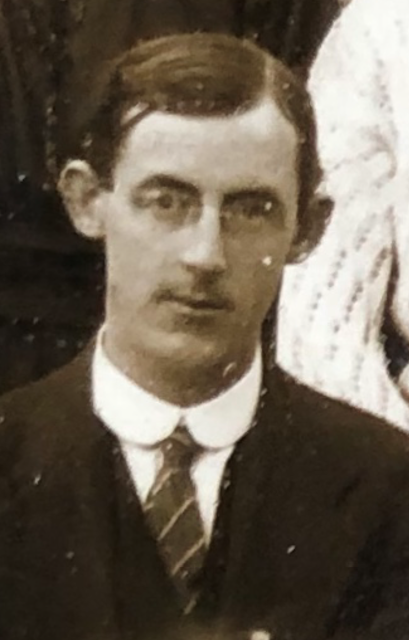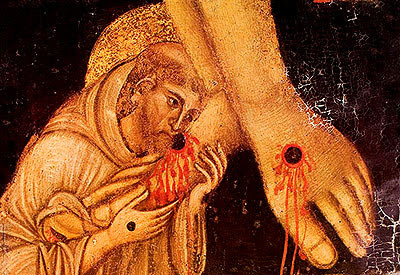The Quiet Revolutionary
One of the most significant Catholic laymen in the last century was, I believe, Frank Duff, the founder of the Legion of Mary. I am doing a lot of work on him at the moment, and I will be for some time, as I am doing my doctorate on the Legion. Engaging with primary sources related to the organisation and to Frank in particular is an eyeopener, and leads me to an even greater esteem for the man and what he achieved. Of course, those who knew Frank would immediately remind me that Frank believed that he had achieved nothing, it was all Our Lady's work, and it was, but she needed a willing cooperator - and that was Frank Duff.
I am sure many of you know about Frank already; if not, there is an excellent biography by one who knew him well: Finola Kennedy's Frank Duff: A Life Story - it is worth reading. He lived a most ordinary life in one way and a most extraordinary life in another. In terms of his personality he was quiet and unassuming, yet as a civil servant in the years of the foundation of an independent Irish state he served with competence and insight; as the founder of the Legion he served as a visionary, an administrator and a teacher of true depth and genius. He was not a charismatic speaker, some described him as dull, but he had a way with words and was erudite in a humble way. He never sought to impress, rather he wanted to inspire and to inform. He was filled with a passion for the mission that God gave him, yet he approached it with a level head, working out what he had to do while remaining open to the guidance of God. He never saw himself as a founder, he was simply a servant.
Frank was a typical Irishman in ways, but in reality, he possessed an independence that the Irish do not possess - we Irish can tend to be notoriously conformist; while we may appear as rebels, in reality, we are always looking over our shoulder to make sure that we fit in with the prevailing climate. But Frank was a rebel, a revolutionary, even within the Church. As the prayer for his beatification says, he was gifted with a profound insight into the mystery of the Church as the Body of Christ, and he understood what he had to draw out of that mystery to inspire laypeople to take up their role in the mission of the Church. At the time of the Legion's foundation, Catholic Action was in the ascendant. That movement worked under the express mandate of the hierarchy, and some commentators in that movement maintained that the laity did not have a mandate in themselves to engage in the apostolate but rather as collaborators of the bishops. Frank realized that the laity did not receive their mandate to engage in the lay apostolate from the bishops, rather, as Vatican II would reiterate, they received it from Christ himself by virtue of their baptism and incorporation into the Mystical Body of Christ. This led him not only to reflect deeply on the lay vocation and the Legion of Mary and its role in the Church, but urged him to form lay apostles so Christ would have more evangelizers in the world.
As he was forming the Legion, teaching this insight, Frank faced a great deal of opposition, most of it from the clergy. His tense relationship with the Archbishop of Dublin, John Charles McQuaid, is well known. The archbishop was not a bad man, he was zealous for souls and for the Gospel even if he was controlling; however he could not understand Frank, not fully. He was afraid of the damage whole hosts of lay people, theologically unformed, running around doing pastoral work, could do. He was a man who wanted to keep his finger on every initiative in the Church in Ireland, and indeed in the state also. Frank was different; he was sure to keep an eye on what the legionaries were doing, and he had to correct them at times, but he was able to let his legionaries get on with their work; he trusted them. Developing a relationship of authentic love and affection, they always looked to him for advice and for an example of how to be a true apostle. Frank's relationship with Archbishop McQuaid's predecessor was just as thorny: Archbishop Edward Byrne was deeply suspicious of Frank and the Legion, and as requests for approval for submitted for prayer cards and the Handbook, the archbishop seemed to have embraced a policy of neglect and concealed hostility. The opposition that Frank faced cost him a great deal, but he bore it quietly and with heroic charity; his patience was constantly tested, and yet he managed to maintain his decorum. This is all being examined now, but I do believe these trials help sanctify him.
Listening to those who knew him, and I meet them everyday now, it is obvious that Frank was a saint, but many of them did not realize it at the time. I was speaking with a legionary who was a member of Frank's cycling club, a group that took a cycling holiday around Ireland each year. She told the most wonderful stories, revealed his great sense of humour but also the profound insights into the Faith that she gained from him. Having coffee in the kitchen of the Legion's headquarters last week with some legionaries, one of them spoke of how he loved cake and sweet things - he had a very sweet tooth; she said that he would be sitting at that very table and smile with glee if a cake was brought out after lunch. (Another legionary told me how the Venerable Edel Quinn used to say she loved a cup of tea and a slice of ham! The humanity of the Saints!)
Frank Duff was a revolutionary, a quiet one, but effective. His vision for the role of the laity in the Church, which found expression in the Legion of Mary in 1920s would finally be taught by the Second Vatican Council in 1960s. He was ahead of his time, and he still is. Today many believe the vocation of the laity concerns service in the sanctuary and many of the rows we see concerns the clericalization of the laity, where lay people feel that they are treated unequally because they cannot have a greater role in the celebration of the Mass. Frank understood that the role of the laity was not to be clerics conducting the liturgy, it was as apostles out in the world proclaiming the Gospel. That is still a revolutionary idea as it seems many Christians are withdrawing from the world rather than evangelizing it, privatizing their faith and concentrating on internal matters rather than a mission outward. We have much to learn from this man.
Frank's Cause is now in progress. The Diocesan phase is coming to an end and soon the documentation will be submitted to Rome. Spare a thought for those involved in it, especially the President of Concilium, the Legion's governing council, and her fellow officers - it has been, and continues to be, a mammoth task. The Cause is huge, one of the biggest. He lived a very long life, was involved in so much and founded what may be the largest lay movement in the history of the Catholic Church and guided it until the day of his death on the 7th November 1980. He was also prolific writer, and one of great learning and theological depth. He was well read and drew on some of the most profound minds in his own work - he was an ardent devotee of St John Henry Newman, as he was of St Louis Marie de Montfort whose Treatise on True Devotion to the Blessed Virgin Mary was a seminal work in his thinking and apostolate. His correspondence was vast - 33,000 letters are preserved in the archives of the Legion, but it is believed he may have written many more. He gave many talks, wrote books, articles and other writings, some are still unpublished. Frank has left a huge legacy, and much of it has yet to be acknowledged and explored. I do believe that he will be numbered among the great Saints of the Church. In the meantime, his Legion continues its work quietly. Though it has waned in Ireland, it is strong in the Church numbering 4 million active members and 10 million auxiliary members. It is present in almost every country of the world.
A final note on the photograph above - it is not the best in terms of quality, but it is significant. A friend of mine asked a few weeks ago why all the images of Frank Duff depicted him as a middle-aged or old man; why not share some photos of him as young. This photo was taken in September 1922 on the first anniversary of the Legion's founding; he was 33, the age of Christ. I think it captures the essence of the man; obviously quiet and humble, engaging and curious, gentle and alert. A young man discerning the will of God for his life and for the task set before him; knowing that it was important for souls, but yet to realize the extent of the revolution he had started.



Excellent article--very informative and concise. Currently, do you know where we can find out about where the cause of Frank Duff is? There does not seem to be any recent information on the internet. For example, his case, (the Positio) was handed over for examination to bishops and cardinals who are members of the dicastery for the Causes of the Saints over a decade ago. I do know that COVID slowed everything done by 3 years+ and that Dicastery’s must be financially self-sustaining now because the Vatican is cash poor after Covid. Since the Congregation for the Causes of the Saints might be suffering financially, I do know that it is customary to give a donation to sustain their operations, but I can’t imagine that lack of money is holding Frank Duff’s cause from progressing.
ReplyDeleteI saw the movie on Frank Duff. Praesidia all over the world are praying the prayer to have Frank Duff canonized a saint, asking for his intercession.
Some basic questions from Legionnaires from around the world include-
1. Is the entire case (the Positio) completed and now in Rome?
2. Is Father Bede McGregor O.P. still the Postulator for the Cause?
3. What is current status of Frank Duff’s cause?
4. Why is not Frank Duff declared venerable, yet? Since he did show heroism.
5. Are miracles being examined by the scientific committee?